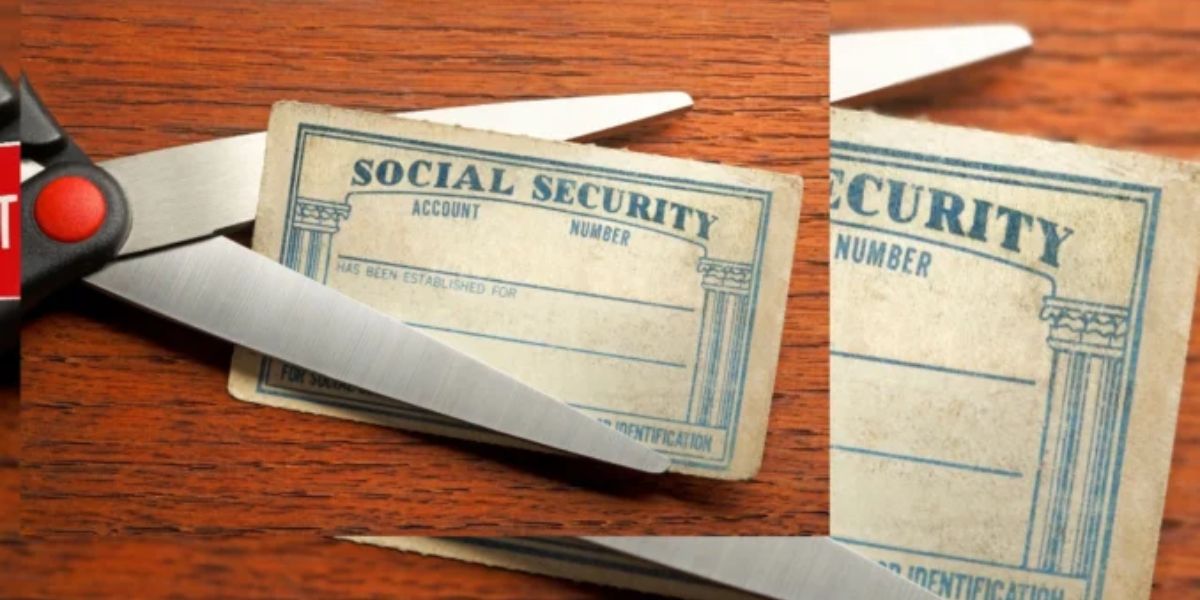Social Security is a crucial source of income for millions of Americans, but there are situations where Social Security checks can be canceled or stopped.
While many individuals rely on these payments for their financial security, it’s essential to understand the circumstances that could lead to the suspension of your benefits.
If you’re receiving Social Security or considering applying, here’s what you need to know about when and why your Social Security checks might be canceled.
1. Failure to Report Changes in Income or Living Situation
Social Security benefits, including retirement, disability, and Supplemental Security Income (SSI), are based on specific eligibility requirements. If you fail to report changes that affect your benefits, your payments may be suspended. This could include:
- Increased income: If your income exceeds the allowable limit, it could affect your eligibility for benefits, especially for programs like SSI or Social Security Disability Insurance (SSDI). Social Security requires you to report any changes in income, including wages, investments, or other sources of earnings.
- Change in living situation: If you’re receiving SSI or other needs-based benefits and fail to report a change in your living arrangements (such as moving in with someone else or changes to your household), it could impact your eligibility.
Failure to notify the Social Security Administration (SSA) of these changes could result in a temporary suspension or even permanent cancellation of your benefits until the situation is clarified.
2. Failure to Recertify or Update Information
For certain Social Security programs, such as SSI, you may be required to undergo periodic recertification or update your personal information. This process ensures you are still eligible for benefits and that the SSA has the most up-to-date information about your financial situation.
If you fail to complete the required recertification or fail to submit requested documentation, such as proof of income, your payments may be suspended. Recertification is often required annually or if there’s a significant change in your circumstances. If you miss these updates, it could lead to a suspension of benefits until the issue is resolved.
3. Conviction of a Felony or Violation of Probation
Individuals receiving Social Security Disability Insurance (SSDI) or Supplemental Security Income (SSI) can have their benefits canceled if they are convicted of a felony offense or if they violate the terms of their probation or parole. While the specific rules vary depending on the offense and the type of benefit you are receiving, Social Security may suspend payments in these situations:
- Felony convictions: If you are incarcerated for a felony conviction, Social Security payments can be suspended for the duration of your sentence.
- Probation or parole violations: If you violate probation or parole terms, it can also lead to the suspension of your benefits.
Social Security typically reviews cases involving felony convictions or violations of legal conditions, which can lead to a suspension of your benefits until your situation changes.
4. Incarceration or Detention
If you are incarcerated in a prison, jail, or correctional facility for more than 30 days, Social Security benefits may be suspended or reduced. Here’s how:
- Retirement benefits: If you are receiving Social Security retirement benefits and are incarcerated for a prolonged period, your payments will be suspended.
- Disability benefits: If you are receiving SSDI and you are incarcerated, your benefits will be suspended. However, if you are incarcerated for less than 30 days, your benefits may not be affected, but long-term incarceration will lead to a halt in payments.
Once you are released from incarceration, you must notify the SSA to have your benefits reinstated. In some cases, individuals incarcerated for extended periods may have to go through a reinstatement process.
5. Excessive Earnings While Receiving Disability Benefits
If you are receiving SSDI or SSI, there are strict rules about how much income you can earn while continuing to receive benefits. The SSA sets an earnings limit, and if you exceed that limit, it could result in the cancellation or suspension of your benefits. For example:
- If you’re receiving SSDI and start earning over the Substantial Gainful Activity (SGA) limit, which is $1,470 per month in 2024 for non-blind individuals, your payments may stop. If you are blind, the limit is higher—around $2,460 per month.
- For SSI, your benefits may be reduced or canceled if your earned income exceeds a certain threshold.
If your earnings are consistently over the threshold, Social Security will review your case, and you may no longer qualify for benefits.
6. Failure to File Required Tax Returns or Pay Debts
Social Security benefits can also be affected by failure to file required tax returns or pay back certain debts. For example:
- If you owe overdue federal debts such as federal student loans, child support, or taxes, your Social Security payments can be garnished to satisfy those debts.
- If you fail to file taxes as required by the IRS, especially if you are required to pay taxes on your Social Security benefits, this could result in complications or delays in receiving payments.
While Social Security payments are generally protected from certain types of garnishment, some federal obligations can lead to a reduction or suspension of benefits.
7. Death of the Beneficiary
If the Social Security recipient passes away, all Social Security checks will be stopped immediately. The SSA is promptly notified of the death through various means, such as death certificates, reports from family members, or information from the funeral home. Once the death is confirmed, any further payments will be halted, and the surviving spouse or family members may be eligible for survivor benefits.
8. Error or Fraud Investigations
If the SSA determines that there has been an error in your benefit calculation or if they suspect fraud in your case, your benefits could be suspended or canceled during the investigation. The SSA conducts audits and reviews to ensure that benefits are paid to eligible individuals. If it’s discovered that there were inaccuracies or fraudulent activity related to your claim, your benefits may be halted.
What to Do If Your Benefits Are Canceled or Suspended
If your Social Security benefits are canceled or suspended, it’s important to take action immediately:
- Contact the SSA: Call the Social Security Administration at 1-800-772-1213 (TTY 1-800-325-0778) to inquire about why your benefits were stopped and how to resolve the issue.
- Submit Required Documentation: If the suspension is due to a reporting issue (such as income changes), submit any required documentation as soon as possible to resolve the issue.
- Appeal: If you believe your benefits were wrongfully canceled, you have the right to appeal the decision. The SSA will provide instructions on how to file an appeal.
- Reapply: If your benefits are permanently canceled, you may need to reapply for assistance, depending on your circumstances.
Social Security benefits provide essential financial support, but they can be suspended or canceled under certain circumstances. It’s crucial for recipients to stay informed about the requirements and to keep the Social Security Administration updated on any changes to their income, living situation, or health.
By understanding the rules and being proactive, you can avoid disruptions to your Social Security payments and ensure your benefits remain intact.


 by
by 

